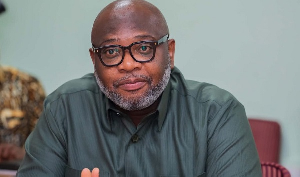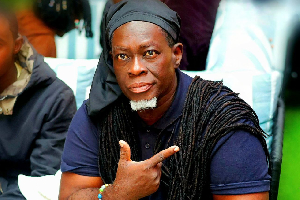Opinions of Sunday, 25 May 2008
Columnist: Hill, LaShunda S.
In Ghana, people don't hide their faith
Driving on the streets of Ghana, I see religious slogans and images on the backs of taxis and the public tro-tros (buses or vans that serve as the country’s main public transportation system).
Pictures of Jesus, or Haile Sallassie — with phrases such as bless Christ, God is Good, Allah is great, or Bible Scripture references — were everywhere. Even names of shops had religious references with names like, Grace and Mercy Hair Salon, My God Is Able Plumbing Works, In God We Trust Fast Food and God Bless You Modern Fashions.
I concluded that in Ghana, one’s religiosity was extremely important and wasn’t something that you hid or only expressed while at weekly church services.
My religion professor said there are three things that matter most to all Ghanaians: religious belief, football (soccer), and politics, with religion being paramount.
“Whether you are Christian, Muslim, Rastafarian, or a practitioner of traditional African religions, your spiritual life is not separate and apart from your public life. Instead, as Ghanaians we are proud to display our belief publicly,” he said.
Even as I attended other classes in English and political science at the University of Ghana, a state school, my professors often use biblical imagery in lecturing.
One professor of political science discussed why he thinks socialism cannot be realistically implemented on a large scale. He said that after the introduction of sin into the world, man is no longer able to avoid being greedy or corrupt, and thus there will always be those who seek to have all of the power and wealth to themselves.
In America, with prayer in schools heatedly contested, and the separation of church and state strongly emphasized, this concept of publicly sharing your religious belief in state schools, or in government, is foreign. Debates over religion’s role in American life has made discussions of spiritual ideology something that most relegate to private places and their prospective churches, mosques, and synagogues. But in Ghana, I find a beauty in the way in which Ghanaians deal with different religious beliefs.
No matter what you choose to believe in Ghana, your spiritual life is not something that consists of simply going to church every week. Instead, it is a part of your identity and your everyday life. God is not an abstract figure who has no hand in the affairs of human affairs. God is proactive and a tangible living force.














